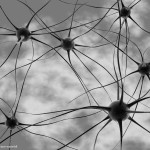MEDIA ADVISORY
January 29, 2017
Contact:
Kristin Dunay
(781)-449-4010 x 104
THE SCIENCE OF INNOVATION: TEACHING STUDENTS TO THINK, CREATE, INNOVATE, IMAGINE, AND INSPIRE
| WHAT: | With jobs becoming increasingly automated, it has become more important than ever for our students to have a creative and innovative mindset for the future. Next month, a distinguished group of cognitive scientists, psychologists, and innovative educators will gather before 1,700 educators at the Learning & the Brain® Conference in San Francisco, CA, to explore the “Science of Innovation” and how it can be applied to today’s education needs. The speakers will discuss new brain research on innovation, imagination, and creativity, and strategies to train creativity and innovation; will explain ways to develop innovative mindsets in students, schools, and leaders; and will show how promoting creativity, imagination, and daydreaming can improve student memory, motivation, and achievement. | |
|
SPONSORS: |
The program is co-sponsored by several organizations including the Graduate School of Education at Stanford University, both Neuroscape and the Laboratory of Educational NeuroScience (brainLENS) at the University of California, San Francisco, The Building Blocks of Cognition Lab at the University of California, Berkeley; The Neuroscience Research Institute at the University of California, Santa Barbara, the Mind, Brain and Education Program at Harvard Graduate School of Education, the Comer School Development Program at the Yale University School of Medicine, The Dana Foundation’s Dana Alliance for Brain Initiatives, Edutopia and The George Lucas Educational Foundation, the Learning & the Brain Foundation and both national associations of elementary and secondary school principals. The event is produced by Public Information Resources, Inc. | |
|
FACULTY: |
Renowned Neuroscientist David M. Eagleman, PhD, will present “The Runaway Species: How Human Creativity Remakes the World and Education” during a keynote on Thursday, February 15. Dr. Eagleman, Director of the Laboratory for Perception and Action at Stanford University School of Medicine, host of the Emmy-nominated PBS series The Brain, and author of The Brain: The Story of You (2017) and Incognito: The Secret Lives of the Brain (2012), will examine human creativity through the lens of brain science, will discuss the essential elements of this critical human ability, and will provide a pathway to more creative systems of education.
In addition to Dr. Eagleman, the program features some other leading experts on the learning sciences including: Alison M. Gopnik, DPhil, Renowned Child Psychologist; Professor of Psychology and Affiliate Professor of Philosophy, Department of Psychology, University of California at Berkeley; Author, The Gardener and the Carpenter: What the New Science of Child Development Tells Us About the Relationship Between Parents and Children (2016); Co-Author, “Learning to Learn from Stories: Children’s Developing Sensitivities to the Causal Structure of Fictional Worlds” (2017, Child Development) and “What Happens to Creativity As We Age?” (2017, The New York Times George Couros, MEd, Division Principal of Innovative Teaching and Learning, Parkland School Division, Alberta, Canada; Former Classroom Teacher; Author, The Innovator’s Mindset: Empower Learning, Unleash Talent and Lead a Culture of Creativity (2015) Larry Robertson, MBA, Founder and President, Lighthouse Consulting; Author, The Language of Man: Learning to Speak Creativity (2016) and A Deliberate Pause: Entrepreneurship and Its Moment in Human Progress (2009)
Charles K. Fadel, MBA, Founder and Chairman, Center for Curriculum Redesign; Senior Fellow at the Partnership for 21st Century Learning; Visiting Practitioner, Harvard Graduate School of Education; Co-Author, Four-Dimensional Education: The Competencies Learners Need to Succeed (2015) and 21st Century Skills: Learning for Life in Our Times (2009)
Mary Helen Immordino-Yang, EdD, Professor of Education, Psychology and Neuroscience, Brain and Creativity Institute and Rossier School of Education; Associate Professor of Psychology, Brain and Creativity Institute, University of Southern California; Co-Author, “How Social–Emotional Imagination Facilitates Deep Learning and Creativity in the Classroom” (2016, Nurturing Creativity in the Classroom)
Todd B. Kashdan, PhD, Professor of Psychology; Senior Scientist, Center for the Advancement of Wellbeing; Director, The Wellbeing Lab, George Mason University; Author, “What Erroneous Beliefs Do You Have About Resilience: New Research on Resilience Around the World” (2017, Psychology Today), “Personality Strengths as Resilience: A One-Year, Multiwave Study” (2016, Journal of Personality), and The Upside of Your Dark Side (2014)
Jonathan A. Gottschall, PhD, Distinguished Fellow, English Department, Washington & Jefferson College; Author, The Storytelling Animal: How Stories Make Us Human (2013) and The Literary Animal: Evolution and the Nature of Narrative (2005)
Tina Seelig, PhD, Neuroscientist; Executive Director, Stanford Technology Ventures Program (STVP); Professor of the Practice, Department of Management, Science and Engineering, Stanford University; Author, Creativity Rules: Get Ideas Out of Your Head and into the World (2017), Insight Out: Get Ideas Out of Your Head and into the World (2015), and Innovation Engine: A Crash Course on Creativity (2014) |
|
| WHEN: | Thursday, February 15 – Saturday, February 17. Conference begins 1:00 PM. General registration is $599 through February 2 and $619 after February 2. Contact Kristin Dunay at 781-449-4010 x 104 for media passes. | |
| WHERE: | Fairmont Hotel, San Francisco, CA | |
Learning & the Brain® is a series of educational conferences that brings the latest research in the learning sciences and their potential applications to education to the wider educational community. Since its inception in 1999, more than 50,000 people in Boston, San Francisco, and New York have attended this series.

